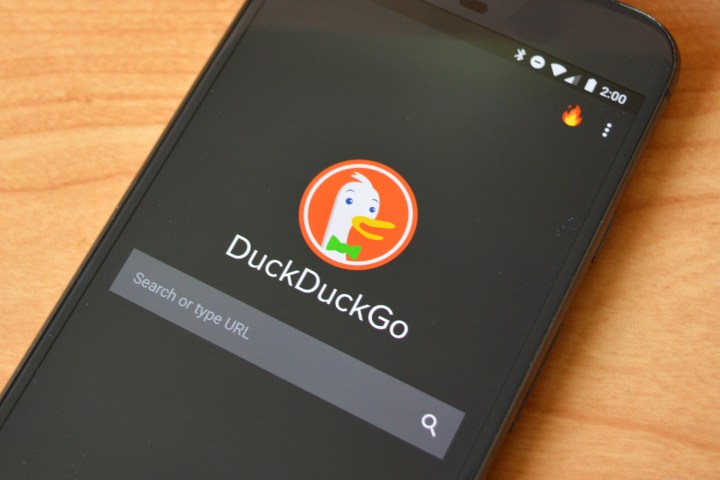As part of an ongoing antitrust trial against Google, Apple has been defending its decision to make Google the default search engine in its Safari web browser. Now, a fascinating tidbit has just emerged: Safari could have been way better at protecting your privacy than it actually is.
In transcripts from the court hearing, it has been revealed that Apple considered making DuckDuckGo the default search engine in Safari’s private browsing mode while keeping Google as the mainstay everywhere else. Despite holding 20 meetings with DuckDuckGo’s executives between 2018 and 2019, Apple ultimately decided against the move.

It’s an interesting revelation because DuckDuckGo is a privacy-focused search engine whose entire raison d’être is essentially to be the opposite of Google. DuckDuckGo makes a point of automatically blocking things like trackers and user fingerprinting, making for a much more private experience than you get with Google, Bing, and other mainstream engines.
That seems like it would be a great fit for Apple, a company whose unofficial slogan seems to be “privacy is a human right.” Yet in the end, Apple decided to stick with Google.
Privacy concerns

According to the court testimony, Apple’s search chief John Giannandrea claimed that because DuckDuckGo relies on Bing for its search results (an engine Apple apparently considered buying), it probably also sends some user data to Microsoft, meaning its “marketing about privacy is somewhat incongruent with the details.”
Despite those concerns over the sharing of user data, Apple opted to continue to use Google, a company whose data-gathering policies are both well-known and widespread. Given Apple’s frequent habit of promoting its devices’ privacy-protecting features, that may look like a strange decision.
Yet as testimony in the ongoing trial has claimed, Apple has a very profitable arrangement with Google, with the search giant reportedly paying Apple at least $8 billion a year to remain the default Safari search engine. Apple’s services head Eddy Cue has also testified that Apple stuck with Google because it felt it was the best option available.
Regardless, you can still change your default search engine in Safari (and many of the other leading browsers) if you want more privacy protection than Google offers.
Editors' Recommendations
- Google witness accidentally reveals how much Apple gets for Safari search
- DuckDuckGo is taking on ChatGPT without busting your privacy
- DuckDuckGo’s new browser could help keep Mac users safe on the web
- DuckDuckGo calls out Google privacy update for ‘creepy advertising’
- DuckDuckGo’s beta browser for MacOS puts privacy first




